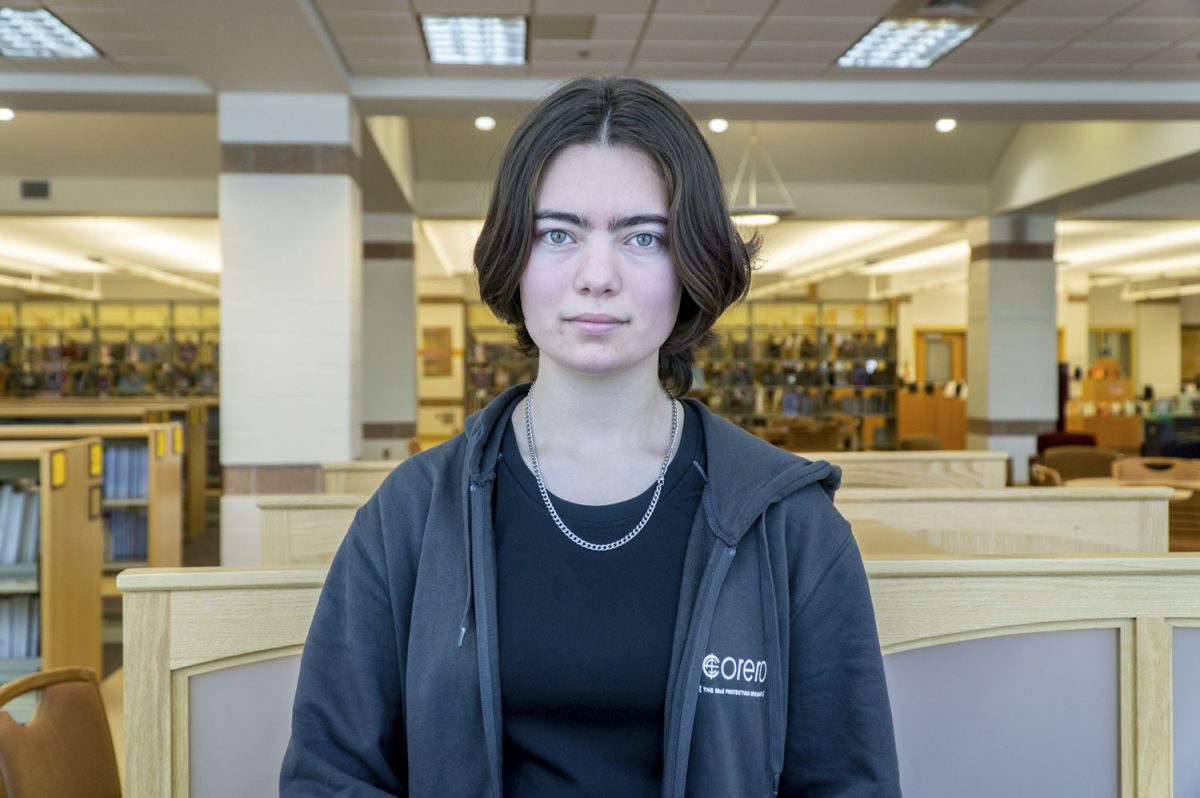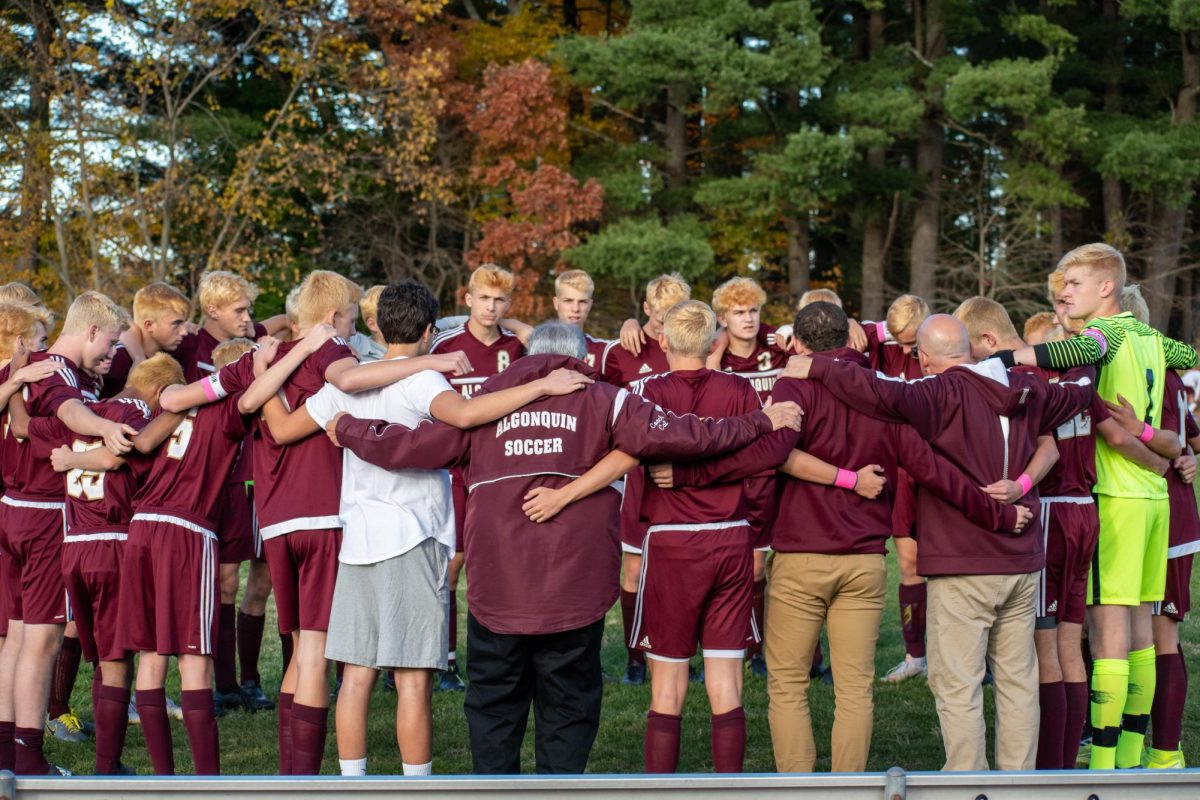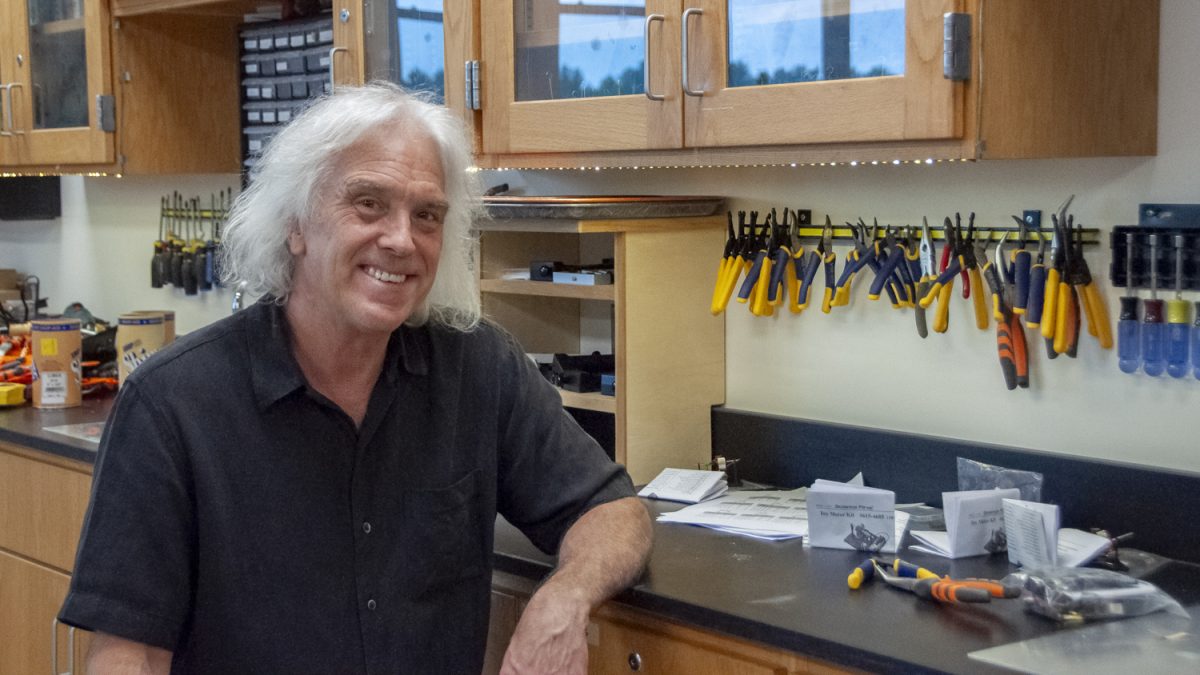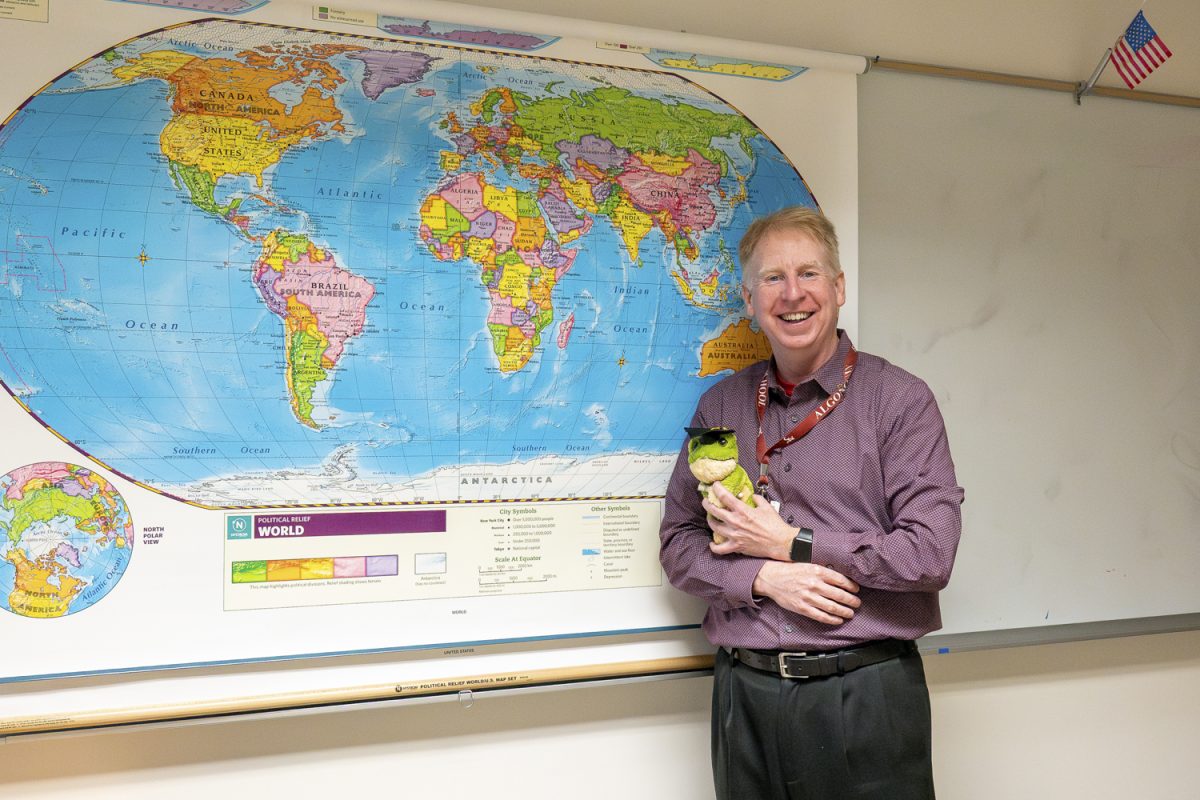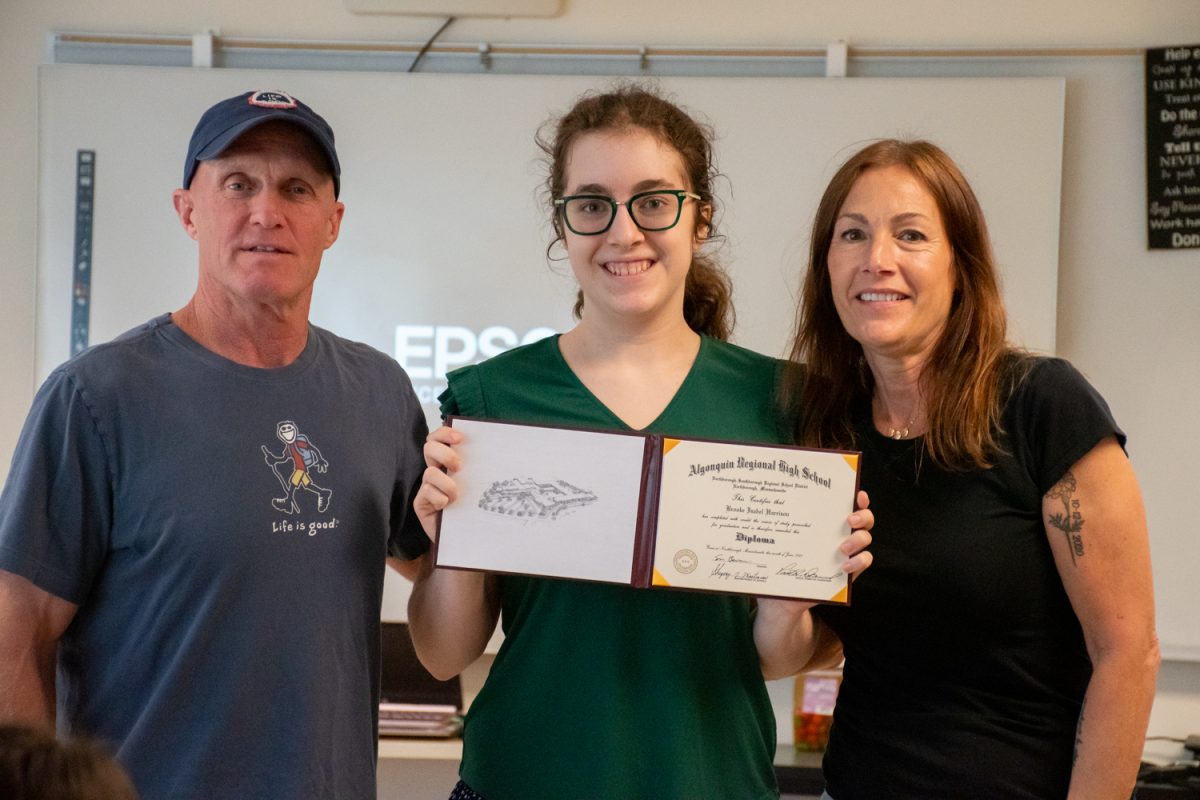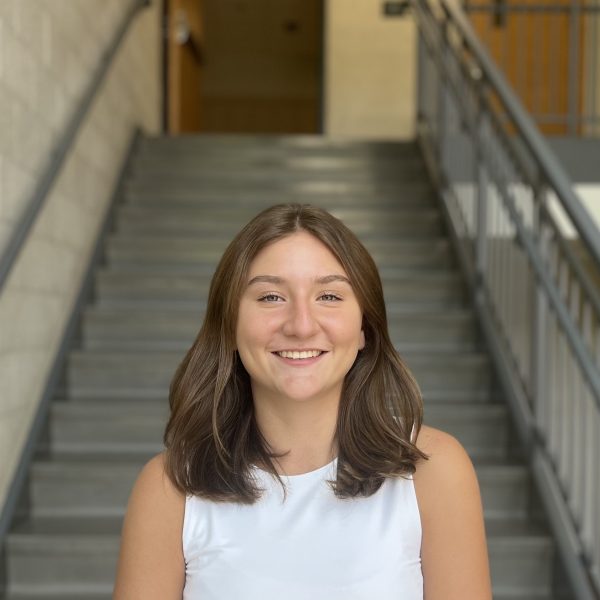The Student Advisory Committee (SAC) is a recently reestablished group of dedicated students who want to make effective change at Algonquin.
SAC is an elected committee that all public schools are required to have by state law, but due to the pandemic, according to SAC president senior Cass Melo, it got lost in the sea of work that the administration had to address. In January 2022, it was officially reinstated, with the help of the Algonquin Student Council. The group began as a temporary committee, which was chosen by the administration, but now elections are held to select members.
The current members include Melo, vice-chair junior Amelia Sinclair, social media coordinator junior Sarah Leonard, Northborough representative sophomore Madison Nicosia and Southborough representative sophomore Madison Wilson. SAC is advised by Social Studies teacher John Barry. The president sits on the Algonquin Regional School Committee as a student representative and a non-voting member. They bring up student issues, answer questions that the administration has about student life and are part of the discussions that are being made for our school.
“It’s like getting a seat at the big table for students,” Melo said.
According to Melo, this committee is like no other in that it makes sure that student voices are being heard. As president, they are now sitting with the members of the community.
“[SAC is] an elected committee,” Melo said. “It’s a really unique position where a student gets to serve alongside these [school committee] members who have been part of the community and have been elected through public office for years.”
While the SAC president is the only student seated at the table along with school committee members, the school committee meetings are open to the public and held every month in the Algonquin’s library. They can range from an hour and a half to six hours. Topics that are usually discussed include scheduling, the school budget and issues within the specific departments of Algonquin. Every three months there is a combined school committee meeting, which discusses issues with the entire Northborough-Southborough district and not just Algonquin, such as mask restrictions, goals of diversity while hiring and mitigating stress levels of students across the district.
“I see the main goal of the Student Advisory Committee as to represent the student body to the best of our ability and advocate for change when it is necessary,” Melo said.
The Student Advisory Committee, this year, is focusing its attention on AI, and how to get better equipped with this new technology. Early February, there was a student survey sent out to help them better understand how it has impacted students’ lives.
“Currently we are working on an artificial intelligence project, which we hope will help inform teachers’ professional development in the future, and will inform school administrators about students’ feelings [towards] AI in order to supplement policies such as the handbook,” Melo said.
Massachusetts Associations of Student Representatives (MASR) is a resource SAC uses in order to help our school by seeing what others are doing. Due to this program, student representatives to school committees give school updates and are active participants in the committee meetings, as opposed to in the past these representatives were restricted to only observing and asking a few questions.
“It’s a great way to learn about what other schools are doing and really push our school to progress forward in a new direction,” Melo said.
For example, Algonquin SAC realized how important it was for ARHS to have Financial Literacy as a mandatory course to take before graduating, so they decided to influence other schools in Massachusetts to do the same. The committee helped pass a Financial Literacy bill at the Statehouse.
“With topics like the Financial Literacy courses that are required by our school, a lot of schools across the state do not have those; as students at Algonquin, we are able to be in a really great position to advocate for changes that other schools can take on to become similar to ours,” Melo said.
Thanks to the student leadership and the connection those leaders have to the administration, they are able to make an impact.
“Algonquin, as a school community, has a reputation for students being really well informed and being really good advocates for themselves,” Principal Bevan said. “In some schools, it’s just not the case. I think in order for that to work they have to have a good relationship with adults, and they have to have strong student leadership. We have been able to have that, and that’s something that we should be really proud of.”
Melo believes it is important for the student body to understand the work SAC does.
“I think the work the Student Advisory Committee does, and has done in the past, is often very quiet and behind the scenes, but it is really important to understand a piece of how our school system works and functions as a whole,” Melo said. “The Student Advisory Committee is a great way to make sure that students are always advocated for by their peers and a great way to inform the student body about big issues that are discussed at the regional level.”
Barry believes that this committee is a key part of the students’ high school journey.
“The average student might not understand how important it is,” Barry said. “The bottom line is that the Regional School Committee will talk about things like standardized testing and graduation requirements. They will talk about some things that will really mean a great deal to the students in this school, in their academic journey for four years. They should be interested in what is going on and be open to asking questions.”
Editor’s Note: This article contains sources who are members of The Harbinger’s Editorial Board. Such members have been removed from this article’s editorial process in order to maintain fair and bias-free reporting.



